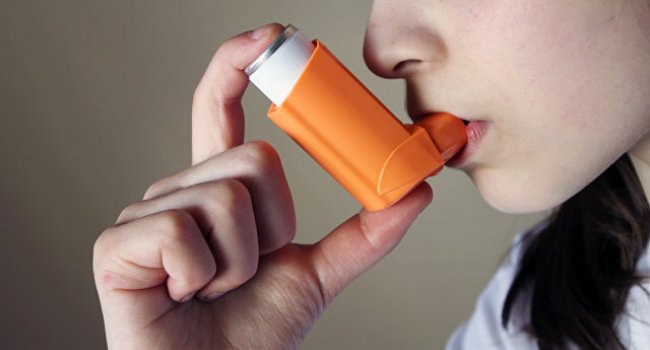Clearing the air adult women are about twice as likely to have asthma as men. New work in mice finds that testosterone impacts immune cells involved in the disease.
Testosterone may tamp down asthma caused by inhaling pollen, dust or other airborne allergens. That’s partly why more women suffer from the lung disease than men, new research suggests.
The male sex hormone acts on a group of immune cells that are part of the first line of the body’s defense against invaders. These cells are thought to kick-start inflammation in the lungs, which causes airways to narrow during an asthma attack. In mice exposed to an allergen, testosterone reduced the inflammatory response, researchers report in the Nov. 28 Cell Reports.
“How male and female sex hormones can affect the immune system is important for understanding the molecular and cellular basis of sex differences in diseases like asthma,” says Nicola Heller, an immunologist at Johns Hopkins University School of Medicine not involved in the study. Such findings may lead to new treatments and ways to manage symptoms, she says.
Nationally, more than 18 million adults and 6 million children have asthma, according to 2015 data from the Centers for Disease Control and Prevention. One clue that sex hormones play a role in the disease — which causes wheezing, shortness of breath and coughing — comes from asthma rates. As children, boys are more likely than girls to have asthma. But around puberty, when sex hormones shift into high gear, the balance begins to change. By midlife, women are more likely to suffer from asthma than men.
Dawn Newcomb, an immunologist at Vanderbilt University Medical Center in Nashville, and colleagues examined the impact of testosterone on immune cells called group 2 innate lymphoid cells. These lymphocytes, which reside in tissues such as the lungs, gut and reproductive tract, “can be stimulated very quickly,” Newcomb says. In response to an allergen, the cells release proteins called cytokines that rev up inflammation. But male mice exposed to Alternaria alternata, a kind of leaf-spot fungus that can trigger asthma symptoms, did not produce as much of the cytokines as exposed female mice. In further tests, the researchers determined that testosterone was preventing the innate lymphoid cells from multiplying in the lungs. Fewer cells meant fewer proteins and less inflammation in the lungs.
Adult male mice also started off with fewer of the lymphoid cells in the lungs than adult females, the researchers found: Female mice had about 1½ times as many of these immune cells as males.
In humans, Newcomb and her colleagues measured the number of group 2 innate lymphoid cells circulating in the blood of adults with moderate to severe asthma. The women had about twice as many of the cells as did the men, indicating there may be more in the lungs as well, Newcomb says.
Next, the researchers plan to investigate how female sex hormones may affect asthma, she says.












